Solace Global: The Poole firm that saves lives in danger zones
- Published
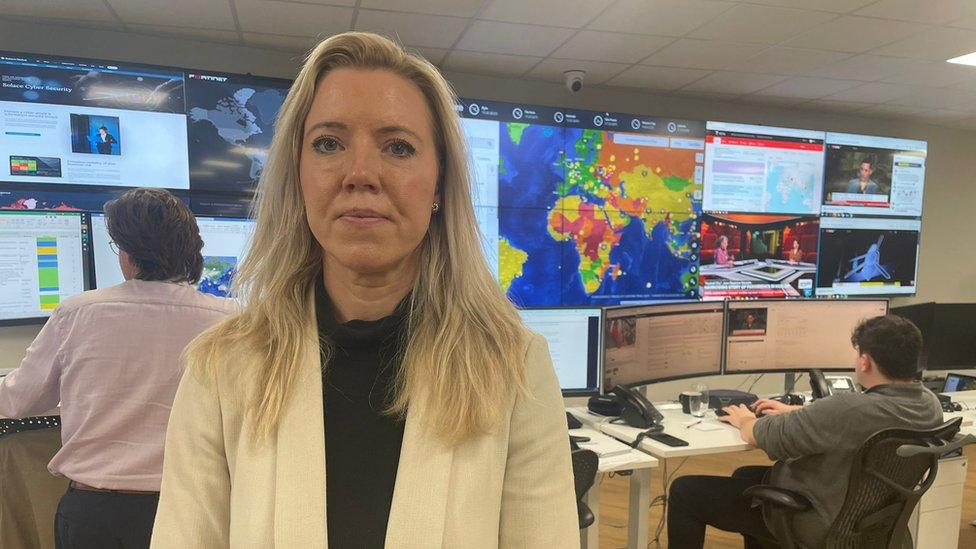
"Global instability is increasing" according to Solace Global Risk's Emily Roberts
Solace Global Risk hit the headlines when three of its security contractors escorting a food convoy were killed in an Israeli air strike in Gaza on 1 April. They were the firm's first loss of life in its 14-year history, according to managing director Emily Roberts. The firm works to protect clients in danger zones worldwide.
Ms Roberts has dealt with everything from emergency medical evacuations to kidnaps for ransom, although she says the number of lives saved is hard to quantify.
"Do we save lives? Absolutely.
"One example is South Sudan," she says. "Two people had been badly shot when there was a civil uprising. Medical centres were inundated.
"We had to get a team to them, get them across the border to Kampala Hospital by helicopter. Both survived."
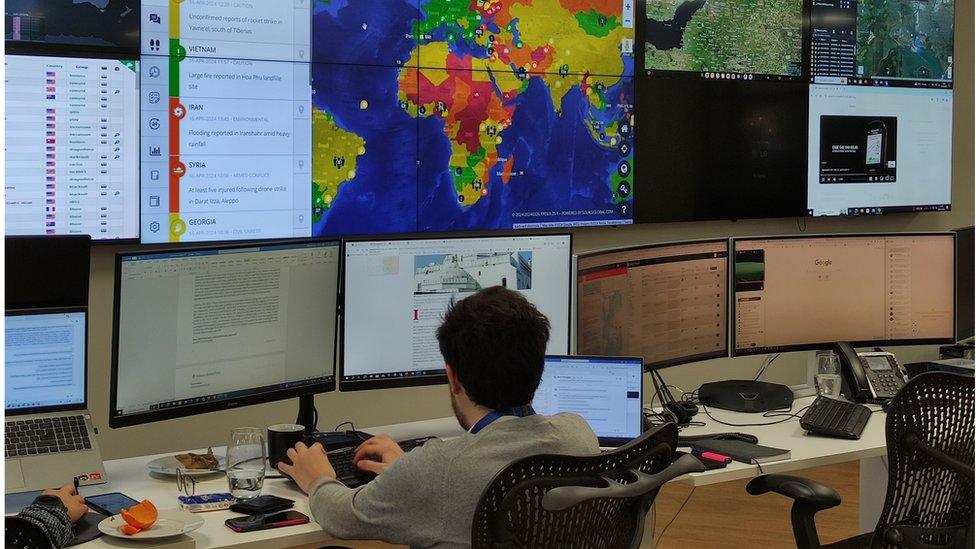
Staff monitor clients and world events from the firm's headquarters
Protection for clients, including aid agencies, private corporations and wealthy individuals, is arranged from the company's headquarters in Poole, Dorset.
It is close to bases for the Special Boat Service and Royal Marines, whose former members provide some of Solace Global's staff.
About 20 workers - mostly men - are sitting in front of computers in the firm's 24-hour control room when the BBC visits.
One wall of the room is largely covered with a large map of the world showing clients' locations and international incidents.
There are TV news channels and a screen showing text alerts that have been provided by Solace Global to clients.
"In Israel, unconfirmed reports of rocket strike," proclaims the latest update.
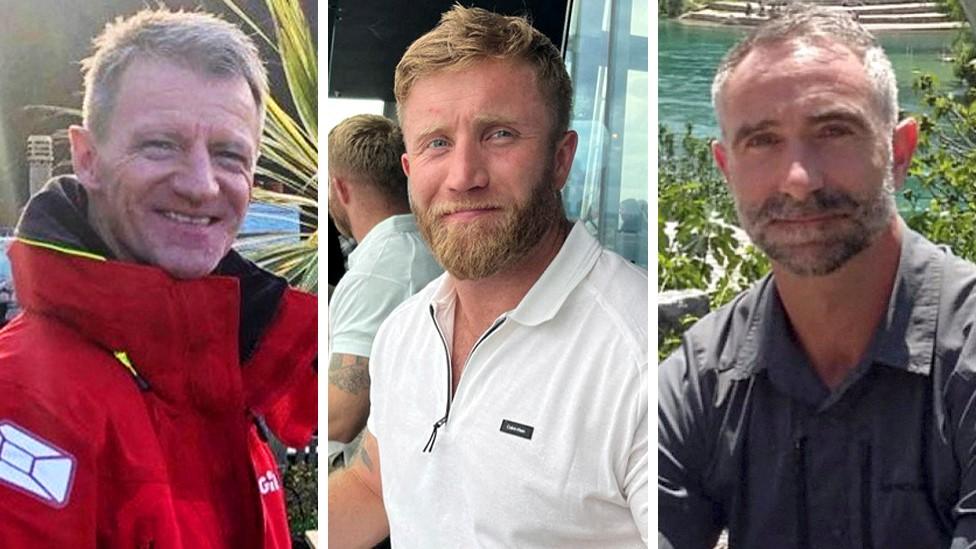
Three security staff contracted by the firm - John Chapman, James Henderson and James Kirby - died in an Israeli air strike in Gaza
Social Global informs customers about emerging threats via smartphone software, which includes an SOS button.
It subscribes to services that use algorithms to scan social media for trouble spots.
"There could be a spike in people mentioning a gun in a shopping mall," Ms Roberts explains.
She says she can advise clients to leave the area before the news has been reported on media channels.
"In the recent Sydney mall attack, we were an hour ahead," she adds.
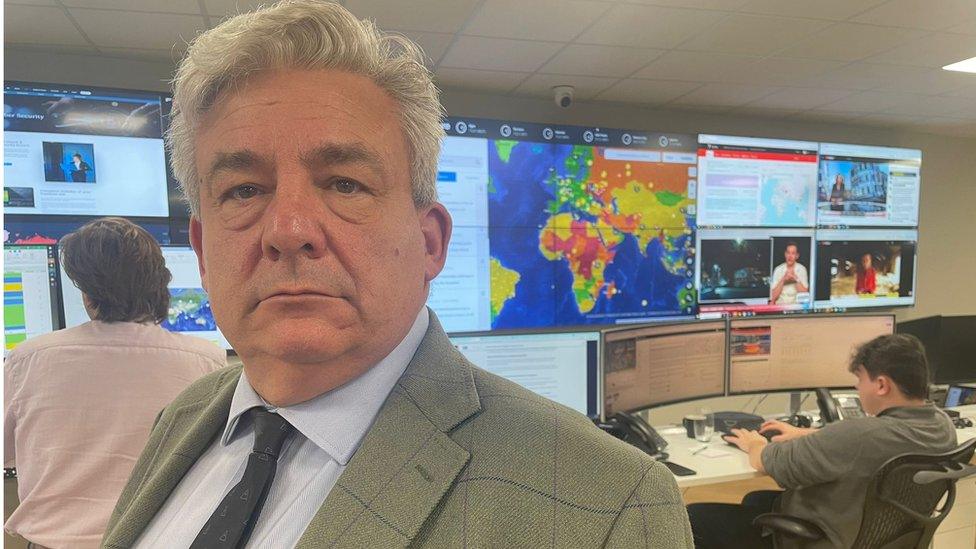
Director Matthew Harding says risk evaluation has become more mainstream
Solace Global has three divisions: risk, maritime and a rapidly-growing cyber division dealing with ransomware attacks.
Workers in the field are usually freelancers, while about 100 people are UK employees.
Those killed in Gaza - contractors John Chapman, 57, James Henderson, 33, and James Kirby, 47 - were all experienced ex-servicemen.
Hired security escorts are often not armed but "super-experienced" at dealing with danger, according to risk non-executive director Matthew Harding.
"They are calm if conflict breaks out, they know what hard cover looks like.
"I've personally taken cover behind a dry stone wall and had it collapse on top of me.
"A gunshot wound can look very traumatic when you're trying to give first aid."
However, much of the work involves anticipating trouble rather than responding to emergencies, he says.
"When there might be riots in France, we would advise travellers to Paris to change their plans to avoid it altogether."
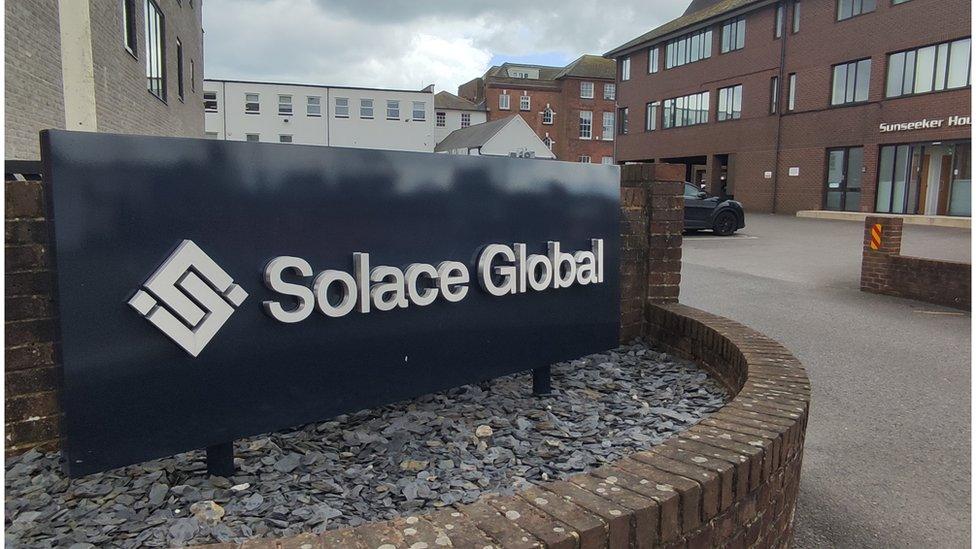
The firm's headquarters in Poole is close to military bases
He says one client was in danger of falling victim to kidnap gangs in Caracas, Venezuela.
"A woman, five months pregnant, was due to fly in at 11 o'clock at night. We reviewed the plan and said you must not do this.
"Consideration of risk has become much more mainstream.
"Nowadays, lots of companies never go anywhere dangerous but are keen to avoid unforeseen events."
Ms Roberts says the list of threats might also include natural disasters and extreme weather.
"Firms owe a duty of care to travelling staff," she says.
"The world has gone absolutely crazy. Global instability is increasing.
"Companies have realised: 'We need to see where our people are, we need to be able to get help.'"

Follow BBC South on Facebook, external, X, external, or Instagram, external. Send your story ideas to south.newsonline@bbc.co.uk or via WhatsApp on 0808 100 2240, external.
- Published4 April 2024
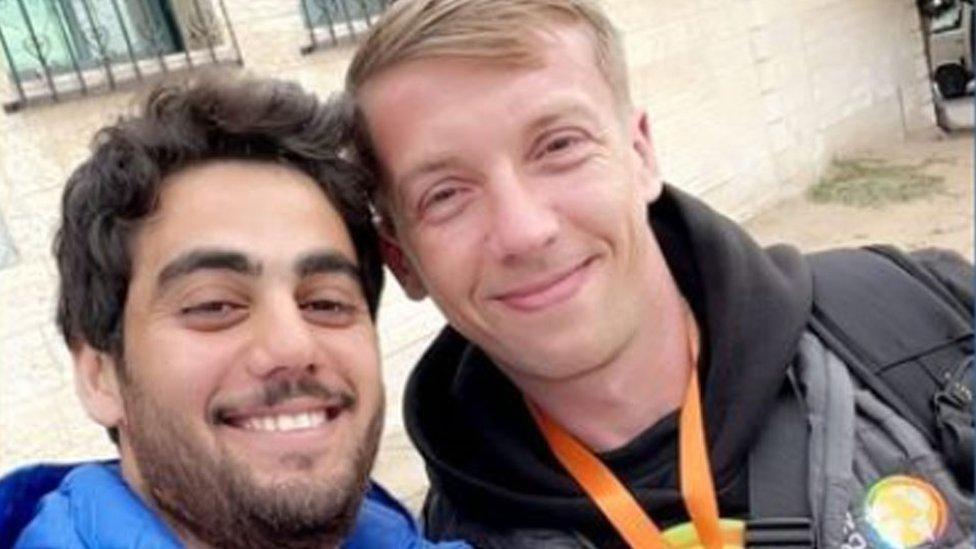
- Published3 April 2024
